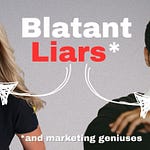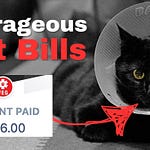The other day I was at a party when a fashionable couple told me that they had mostly stopped drinking alcohol. Now they unwind by taking a health tonic they heard about on the Ben Greenfield podcast called “Feel Free.” They said that it gives them a light-headed buzz and makes it incredibly easy for them to fall asleep and has no noticeable side effects.. They’d been taking Feel Free for a few months now and were giving bottles to all of their friends.
They didn’t know that I’d been working on a report about Feel Free for the last few weeks. Or how the product’s strange mixture of exotic southeast asian herbs has been fueling a dangerous addiction epidemic. They were shocked at first. And then after a beat, the wife remembered that one of the friends they’d given a bottle to said it was already causing him problems. He’d said he couldn’t stop drinking it.
Chances are that you have never heard of Feel Free before. It comes in a shiny blue bottle sold at convenience stores across the country as a social lubricant and substitute for alcohol. It proudly proclaims that it’s primarily kava—a south east asian tree root that has lots of traditional uses. But until recently, it was less forthright about its other, much more powerful ingredient: kratom.
A few years ago I started seeing signs for kratom at my local head shop and figured that it was some sort of cheap marijuana substitute, but I didn’t give it another thought.
What I didn’t know is that since 2016 the FDA has been trying ineffectively to get the addictive opioid-esque leaf off the streets, while a powerful drug lobby has used a familiar playbook to keep it legal(ish).
The kratom industry is worth approximately $1.5 billion today.
In an amazing investigative series, the Tampa Bay Times tracked Kratom production from farms and ports in Malaysia and Thailand through shipping routes to Oakland and then overland to processing and distribution centers in Colorado, Georgia and Florida. They uncovered documents attributing kratom, at least in part, to more than 500 deaths in Florida alone. Back of the envelope math suggests the national total would be in the thousands.
And while kratom is having its heyday in the press, the various health elixirs based off of it are getting a lot less attention.
I only became aware of Feel Free once people started sliding into my DMs from a reddit board called r/quittingfeelfree. While scientists are already hard at work researching the nuances of kratom addiction, posters told me Feel Free was somehow much worse than they could have ever imagined.
Because whatever the issues people were having with kratom, Feel Free was somehow different. People who had been using kratom on its own for years without a problem said that this blue bottle tipped them over the edge into dependency.
One woman whose daughter died with blue bottles all around her called it “Evil Incarnate.”
Botanic Tonics, the company that makes Feel Free uses a proprietary blend of ingredients that synergies into a concoction that users tell me feels almost tailor made to foster addiction.
It was only after I started looking into the founder’s background that things started to click. . .
There seems to be a pattern with the successful founders behind the most profitable supplements and wellness companies that populate the internet. Almost all of them have deeply unethical, and often criminal, backgrounds. Whether it’s the founder of AG1’s origin criminal real estate schemes, Andrew Huberman’s shaky science and constant affairs, or Joe Dispenza’s faith healing empire, they all have something to hide.
The founder of Feel Free’s secrets are on a whole other level.
When I began digging into this story it only took me a few hours to discover rumors that JW Ross was an alias. His real name is Jerry Cash. He’s a former oil executive who was convicted of stealing $10 million in 2009 and sentenced to 9 years in jail. This wasn’t too surprising to me, but when I got in touch with Botanic Tonics to confirm the rumors, their response was stunning.
Ross admitted that he was the same person, but asked me not to disclose his identity because he was in the witness protection program and that my reporting would put his life in danger. Furthermore he said that if I put this report out that I risked being prosecuted to the fullest extent of the law and even put in jail.
Here’s an excerpt from his letter:
I reported to prison in January 2011. After serving a little over 3 years in federal prison I discovered (I practically lived in the law library) that my sentence was not proper (improper wording of the quickly passed Sarbanes Oxley law) and began the process of getting my sentence reduced. I was sent back to my sentencing courthouse to be heard by a judge on my appeal. While in a holding cell I discovered that a prisoner (the leader of an extremely violent extremist group) was planning to harm the federal judge that sentenced him. With my help the US Marshals intercepted mail from the prisoner and that fully corroborated my story. I was transferred and met with my judge. After hearing the results of my research and being appreciative of protecting the judge from harm, I was released for time served.
To protect my and my family’s life, the Federal Government ‘under federal seal’ sealed the case and my identity change, inclusive of a new social security number, passport and change of name. I was told I was under no legal obligation to disclose this to anyone and further if I did there would be consequences.
I’m reasonably used to people I report on trying to influence the way I collect and disseminate information, but I had to admit that this was new. I learned later that other people who had tried to report on his background received similar letters, including a reporter at ABC who backed off their story.
But something sounded fishy to me. Was Ross using the Witness Protection Program as a shield to prevent blowback on his company?
I spent a few days talking to my legal team and calling up contacts at the FBI and U.S. Marshals Office. Eventually I got a hold of an officer who told me that anyone living as public a life as Ross was was no longer under governmental protection.
In other words, it was just a ruse.
Over the next few weeks Ross/Cash sent me dozens of emails and phone messages about how he was sure that Feel Free was helping people get off harder drugs, and that the people who were “addicted” had clearly misread the instructions on the bottle for proper usage.
This was jarring to me because I had been having non-stop conversations with people who were trying to get off Feel Free and couldn’t. I spoke with several people who had racked up more than $50,000 on their Feel Free habit over the course of a year—easily consuming 10 bottles a day (the recommended dose is 1/2 a bottle).
This is because the stimulant-like effects last for an hour or two before crashing into something like a hangover where the only easy way out of the comedown is to have another shot. Eventually, I tried Feel Free myself. While I don’t have much of an addictive personality I could feel the pull for wanting more after just a few hours of euphoria.
The story that I’m telling today in my video above should be familiar by now. A former criminal discovered that he could make a lot of money selling an addictive product that somehow still skirts the regulatory framework we have in America for regulating supplements. As usual, the people at the center of the story don’t want the truth to come out and are doing whatever they can to get me to back off. As usual, their efforts won’t work.
If you know anyone struggling with addiction (or just someone who likes to try new energy drinks at convenience stores) consider sharing this story with them.













Share this post